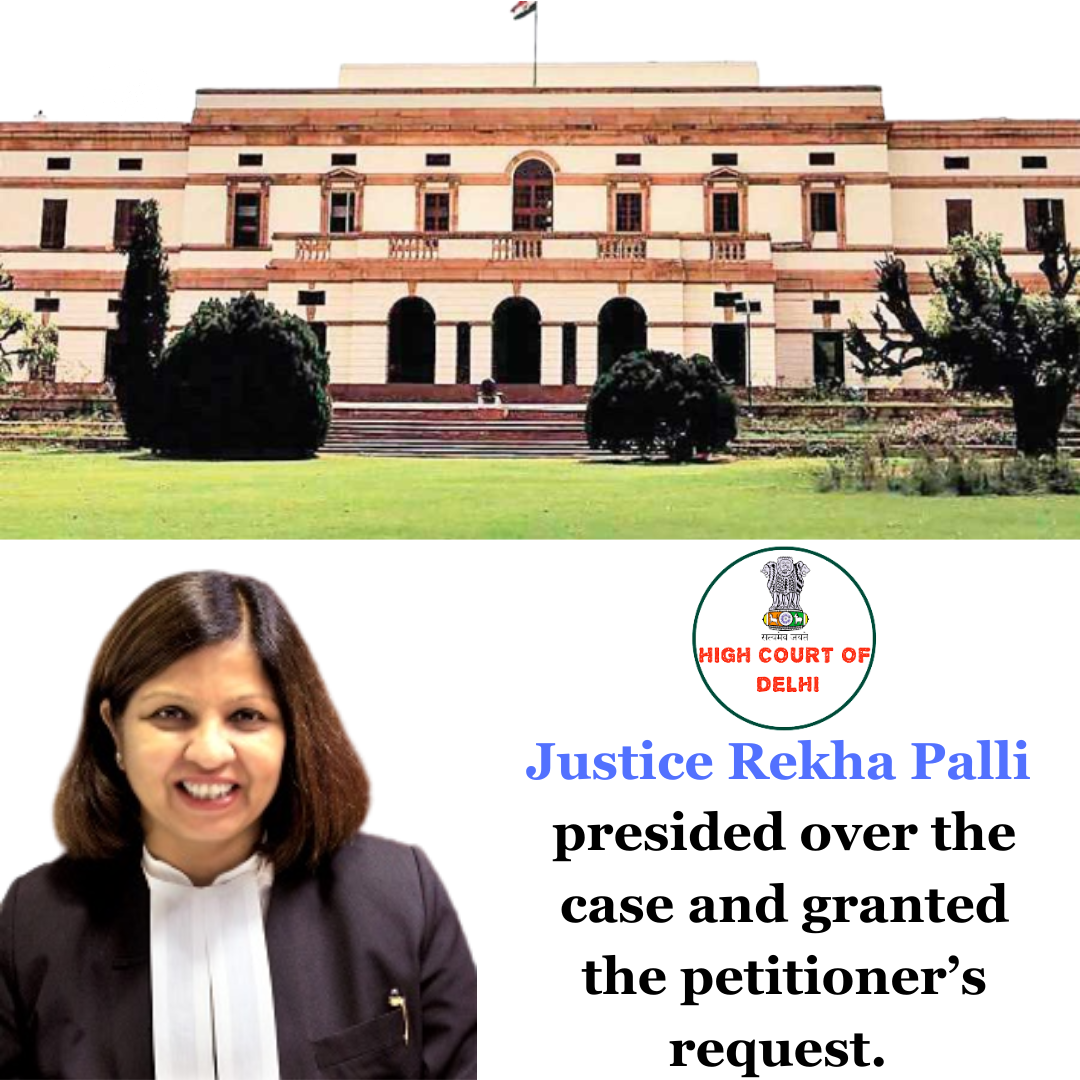The petitioner initiated Delhi High Court proceedings under Section 11 of the Arbitration and Conciliation Act, 1996, requesting the appointment of an arbitrator or arbitral tribunal to resolve disputes arising from a lease agreement with the respondent. Justice Rekha Palli presided over the case and granted the petitioner’s request. Sheaffirmed that the petitioner’s plea for an unbiased and neutral tribunal was acknowledged, emphasizing the need for a fair and independent adjudication process. As a result, the court ordered the appointment of an independent and impartial arbitrator or arbitral tribunal, ensuring a just resolution of the disputes between the involved parties in accordance with the law.

In The Case Background, Delhi High Court
The petitioner invoked an arbitration clause within a lease agreement, stipulating the resolution of disputes by a three-member tribunal. According to this clause, each party was entitled to nominate a member, and the vice chairman of the respondent would appoint the presiding arbitrator. However, a dispute arose when the petitioner proposed its nominee arbitrator, and the respondent rejected the suggestion. Instead, the respondent provided a list of five individuals from their panel, instructing the petitioner to choose from these names. The petitioner contended that this offer was unacceptable as it did not provide a diverse and inclusive selection of arbitrators, thereby lacking a broad-based representation.
The petitioner argued that this deviation from the agreed-upon process violated the fundamental principles of fairness and neutrality in arbitration. To rectify the situation, the petitioner approached the court seeking a resolution. The petitioner’s plea was for the court to either grant them the freedom to appoint their nominee, with the respondent having the same liberty, or for the Delhi High Court to appoint both nominee arbitrators independently.
The petitioner challenged the respondent’s refusal to accept their nominee arbitrator and the subsequent limited and non-diverse panel presented by the respondent. The petitioner sought the Delhi High Court intervention to ensure a fair and just arbitration process by appointing arbitrators who were truly impartial and unbiased.
Delhi High Court Analysis of Case
The Delhi High Court engaged in a comprehensive analysis of the arbitration clause within the lease agreement, which was central to the dispute between the petitioner and the respondent. The lease agreement in question granted the petitioner the right to select one arbitrator from a panel of 5 individuals offered by the respondent. Simultaneously, the agreement vested the respondent with the authority to nominate the remaining two arbitrators. The crux of the matter revolved around the respondent’s insistence that the petitioner must choose its arbitrator solely from the five-member panel proposed by the respondent.
To comprehend the complexities of the case, the Delhi High Court delved into relevant legal precedents. It referred to the Margo Networks (P) Ltd. v. Railtel Corporation of India Ltd. case, a decision rendered by a Coordinate Bench of the same court. This case critically examined the rulings in Voestalpine Schienen Gmbh v. Delhi Metro Rail Corpn. Ltd. The Delhi High Court in the Margo Networks case determined that a similar situation involving a multiple-member panel offered by the respondent was unduly restrictive. Consequently, the Court in the Margo Networks case exercised its authority to appoint nominee arbitrators for both parties, ensuring a fair and unbiased arbitration process.
Also Read:-
The Delhi High Court in the present case expressed its inability to fathom how the respondent’s position, where it unilaterally appointed two out of the three arbitrators and limited the petitioner’s selection to the provided five-member panel, could be considered a balanced approach. This argument was grounded in the principles set forth in the Voestalpine Schienen Gmbh Case and Perkins Eastman Architects DPC v. HSCC (India) Ltd. The Court emphasized that the petitioner’s mere option to choose from a list of five individuals highlighted the inadequacy of the panel proposed by the respondent, indicating a lack of diversity and inclusivity.
Moreover, the Delhi High Court raised a crucial question: whether the concept of “counter balancing,” as articulated in legal precedents, could be achieved when one party possessed the unilateral authority to appoint two-thirds of the arbitral tribunal members. The Delhi High Court observed that the Central Organization for Railway Electrification Case did not specifically address this issue, rendering it inapplicable to the present context.
Ultimately, the Delhi High Court ruled in favor of the petitioner, accepting their plea for the appointment of an independent and impartial tribunal to adjudicate the disputes. In accordance with the terms of the lease agreement, which envisioned a three-member Arbitral Tribunal, the Delhi High Court designated Justice G.P. Mittal, a former Judge of the Delhi High Court, as the petitioner’s nominee arbitrator. Additionally, Justice Vinod Goel, another former Judge of the Delhi High Court, was appointed as the respondent’s nominee arbitrator. These two arbitrators were entrusted with the responsibility of selecting the presiding arbitrator, thereby ensuring a balanced and equitable arbitration process for the resolution of disputes between the parties involved.
Also Read:-









Leave a Reply